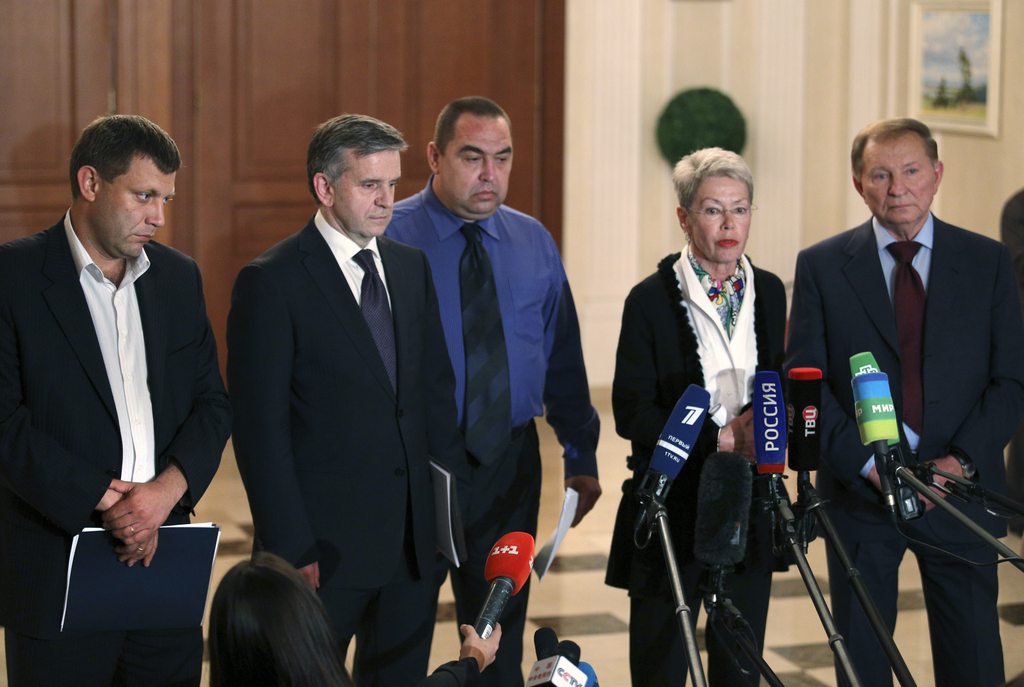Ukraine crisis benefits from OSCE input

The first days in the implementation of the agreement to end the Ukraine crisis are very important, said Swiss Ambassador Heidi Tagliavini in an interview published Sunday by the Swiss weekly newspaper Sonntagszeitung.
“As I’m speaking with you, the guns are silent. That would have been unthinkable just a few days ago.”
However, although the truce between the Ukrainian army and pro-Russian separatists largely held on Saturday, strong explosions were heard early Sunday near the airport on the outskirts of the main rebel-held city in eastern Ukraine, raising fears that the ceasefire was on the verge of collapse after only two days. The five-month conflict has cost nearly 2,600 lives so far.
Tagliavini had played a major role in the negotiations which took place on Friday between representatives of Kiev, Moscow, the separatists and the Organization for Security and Co-operation in Europe (OSCE). The OSCE is currently headed by Swiss President Didier Burkhalter, and Tagliavini sat at the negotiating table on behalf of the OSCE.
Among other things, the parties agreed to a ceasefire, withdrawal of troops and heavy weaponry, the exchange of all prisoners, and the delivery of humanitarian aid to devastated cities in eastern Ukraine. The ceasefire officially took effect on Friday at 6pm local time (5pm MESZ).
Ukrainian President Petro Poroshenko and Russian President Vladimir Putin had agreed in a telephone conversation on Saturday that the ceasefire appeared to be holding, and acknowledged the important role played by the OSCE in the negotiations.
According to Tagliavini, the current ceasefire has better chances of lasting than one that failed in June, because it takes into account suggestions made both by both Poroshenko in June and by Putin a week ago.
“That gives rise to hope that it’s a serious agreement,” she said.
Tagliavini acknowledged, however, that convincing pro-Russian separatists to lay down their weapons is a challenging task, complicated by the fact that there are many different groups of soldiers fighting and they don’t all recognise the same supreme commander.
That highlights the importance of the OSCE’s official role in monitoring the situation, she said. The next step will be to begin political dialogue.

In compliance with the JTI standards
More: SWI swissinfo.ch certified by the Journalism Trust Initiative








You can find an overview of ongoing debates with our journalists here . Please join us!
If you want to start a conversation about a topic raised in this article or want to report factual errors, email us at english@swissinfo.ch.